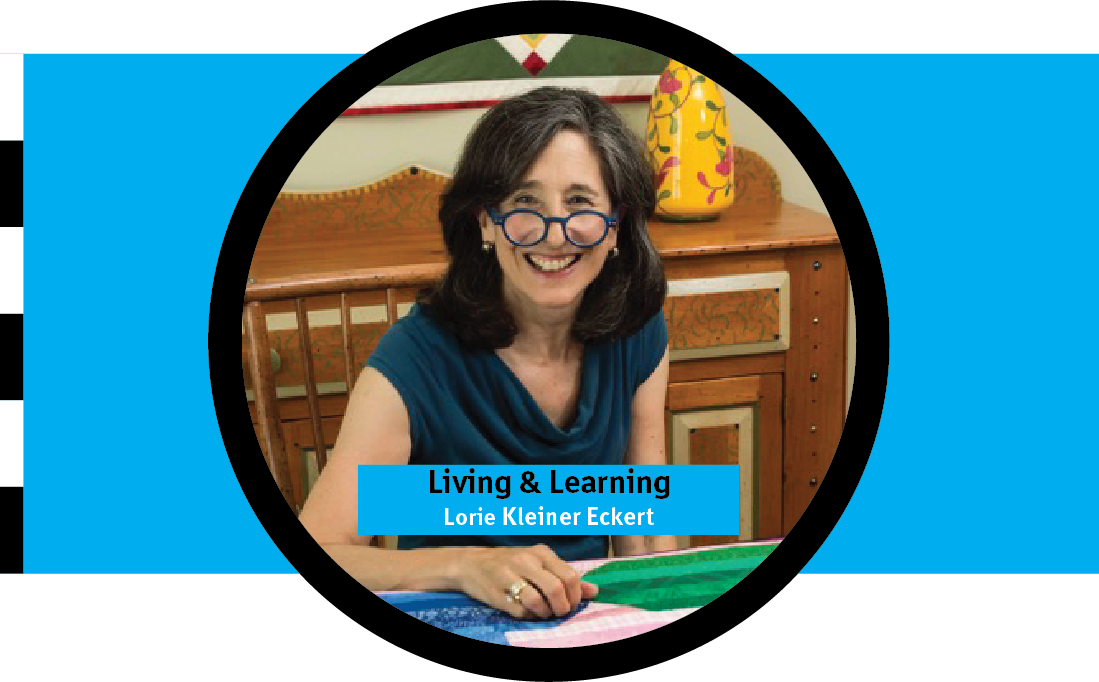I read a story about Elton John in which he said, “The last time I have to sing ‘Crocodile Rock,’ I will probably throw a party.” I get where he is coming from. There are all sorts of things in my life that I am sick of doing and would love never to do again. BUT, the ridiculousness of Elton John’s comment helps me to realize the ridiculousness of my own sentiments. I’d like to suggest to Elton John that he “think instead” of “Crocodile Rock” as a source of his wealth, fame, and popularity. It helped make him a household name. Instead of having it grate on him, perhaps he should just feel grateful. Of course, I’m sure he has figured this out for himself, that is, whenever he takes a moment to think things through. Let’s call it the “Crocodile Rock” method of handling distress…and let’s take a moment to apply it to real life.

In my own case, I am sick of: putting on makeup, exercising, cooking, and washing the coffee pot. But when I think things through, I realize — you will forgive my pun — perks to all of them. The seven minutes of makeup application make me feel prettier and therefore happier. The exercise — my morning walk and time in the gym — gives me time with my walking partner and with my personal trainer, both of whom are dear friends. And if you find me cooking, it means kids and grandkids are coming over which is a yippie yahoo moment in my life. As for the coffee pot, sometimes we get really lucky in life as when God created the pod-style coffee maker thereby eliminating the pot. In every case, I am grateful.
I learned to “think instead” when I was treated for an anxiety disorder by a therapist who uses CBT. No, no, no. I did not say CBD, which stands cannabidiol and is a substance found in marijuana plants. CBT stands for Cognitive Behavioral Therapy. According to the American Psychological Association, CBT is based on several core principles, including these three beliefs:
- Psychological problems are based, in part, on faulty or unhelpful ways of thinking.
- Psychological problems are based, in part, on learned patterns of unhelpful behavior.
- People suffering from psychological problems can learn better ways of coping with them, thereby relieving their symptoms and becoming more effective in their lives.
In short, CBT treatment involves efforts to change thinking patterns.
Toward this goal, my therapist gave me a list of 15 Cognitive Distortions. Not all of them resonated for me, but these did: - Polarized thinking — seeing situations as all or nothing, black or white
- Jumping to conclusions — which assumes I can read other peoples’ minds
- Catastrophizing — going immediately to the worst-case scenario
- Personalizing — taking things personally
- Using “should” statements — imposing expectations on myself
In every case, I was encouraged to notice my actual thoughts, feelings, and behaviors in a given problematic situation. After identifying the cognitive distortions in play, I could figure out alternate thoughts, feelings, and behaviors.
In reality, though, it was much simpler for me than that. I didn’t need to label the specific distortion at play, I just needed to realize I was feeling anxious. When feeling that way, I learned to stop, take a deep breath, and figure out a more helpful way of looking at the situation.
Ultimately, a perfect acronym came to mind: T.I.L.L.I.E. I should note that Tillie is my oldest grandchild’s name and that she is named for my Auntillie of blessed memory. Young Tillie is amazing, as was her predecessor. I want to be like them. So the T.I.L.L.I.E. acronym helps me Think Instead Like Life Is Excellent. And it is! Makeup makes me pretty! Exercise makes me fit! Cooking brings loved ones into my life! And coffee, well, thank God for coffee! So much joy from such a small thing!
Among the things I really like about CBT is the fact that it is therapy focused on what’s wrong now and does not — for the most part — comb through all the years of your life to find an answer. I’ve tried talk therapy in the past. Its focus on long ago issues seems ludicrous. At age 71, can I really blame my parents or high school happenings for anything wrong in my life today?!
Here are more things to like about CBT: - In that it teaches patients to identify dysfunctional thoughts, it is goal-oriented and problem-focused.
- It teaches the patient to be their own therapist.
- And therefore, it is not a long-term therapy situation. Most anxiety or depression can be treated in 6-14 sessions.
What can I say? It is my plan to “Crocodile Rock” or T.I.L.L.I.E. my way through life’s stresses, hoping that if I do, I’ll be singing along with Elton John: “I never knew me a better time and I guess I never will.”


